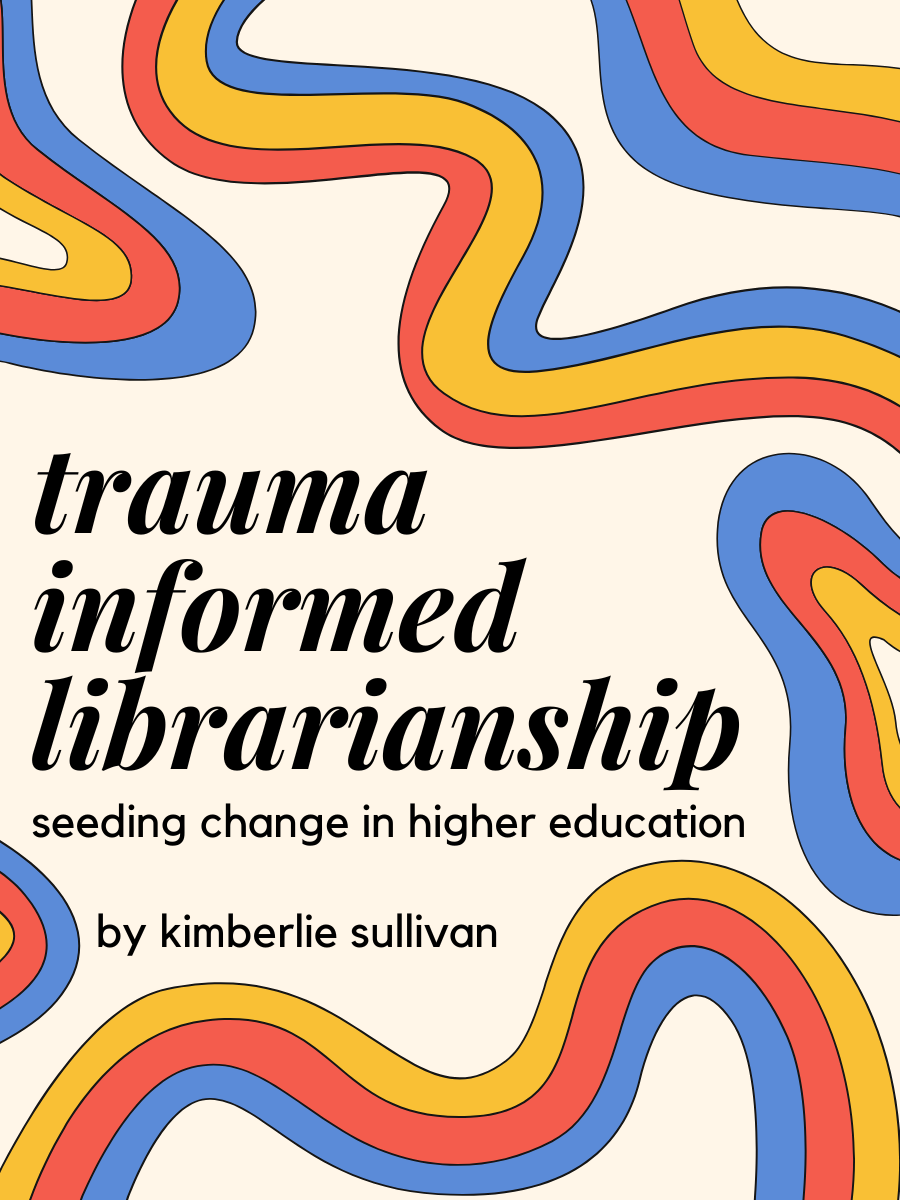Book Title: Trauma Informed Librarianship
Subtitle: Seeding Change in Higher Education

Book Description: This book offers a comprehensive exploration of trauma-informed librarianship, guiding readers through foundational principles and practical applications. The initial section delves into the nuances of trauma, illuminating its diverse manifestations and impacts on behavior. Readers gain a nuanced understanding of trauma's cognitive, emotional, and behavioral effects, laying the groundwork for discussions on trauma-informed care in library settings.The subsequent section focuses on six key principles of trauma-informed librarianship, blending theoretical insights with actionable strategies for creating inclusive spaces. Emphasizing safety, trustworthiness, and empowerment, librarians learn to prioritize the well-being of trauma-affected individuals. Throughout the book, reflective questions prompt critical examination of biases and actions, fostering continual growth and improvement in trauma-informed practice.
Contents
Book Information
Book Description
This book serves as a call to action for libraries to adopt an anti-racist, anti-ableist framework within the realm of trauma-informed librarianship, challenging the entrenched whiteness and ableism prevalent in library settings. By prioritizing inclusivity, empathy, and understanding, trauma-informed librarianship aims to create safe and supportive environments for all patrons, particularly those from marginalized backgrounds such as 2/SLGBTQIA+, disabled, and students of color.
Throughout history, libraries have served as bastions of knowledge and learning, yet they have also reflected and perpetuated societal inequities. Sara Ahmed’s exploration of whiteness as a pervasive norm sheds light on how libraries, consciously or unconsciously, uphold white supremacy through their practices and structures. Similarly, Jay Dolmage’s analysis of academic ableism reveals how institutions of higher education, including libraries, have historically marginalized disabled individuals, perpetuating harmful stereotypes and barriers to access.
By embracing trauma-informed practices, libraries have the opportunity to dismantle these oppressive systems and create spaces that prioritize safety, trustworthiness, and empowerment for all patrons. Trauma-informed librarianship recognizes the impact of systemic oppression on mental health and well-being and seeks to mitigate harm by fostering a culture of empathy, understanding, and empowerment within library settings.
The book outlines six principles of trauma-informed librarianship, offering both theoretical insights and practical strategies for implementation. These principles include:
- Mindful Navigation of Power Dynamics: Librarians must be aware of their own positions of power and privilege and work to create equitable and inclusive spaces for all patrons.
- Open, Empathetic, and Flexible Communication: Effective communication is essential for building trust and understanding with patrons who may have experienced trauma.
- Proactive Resistance to Re-traumatization: Libraries should actively work to create environments that do not trigger or re-traumatize individuals who have experienced trauma.
- Empowerment, Safety, and Trust: Librarians should empower patrons to make choices about their own experiences and prioritize their safety and trust.
- Commitment to Community and Self-Care: Libraries should foster a sense of community and belonging among patrons and staff, while also prioritizing self-care and well-being.
- Commitment to Continual Learning: Librarians should engage in ongoing education and training to deepen their understanding of trauma and its impact on patrons.
Through the integration of trauma-informed practices and critical reflection, librarians can work towards promoting equity, compassion, and empowerment within their communities. By creating inclusive and supportive library spaces, libraries can become catalysts for positive social change, fostering communities where everyone has the opportunity to thrive and access the resources they need to lead fulfilling lives.
License
Trauma Informed Librarianship Copyright © by Kimberlie Sullivan is licensed under a Creative Commons Attribution-NonCommercial 4.0 International License, except where otherwise noted.
Subject
Library and information sciences / Museology

